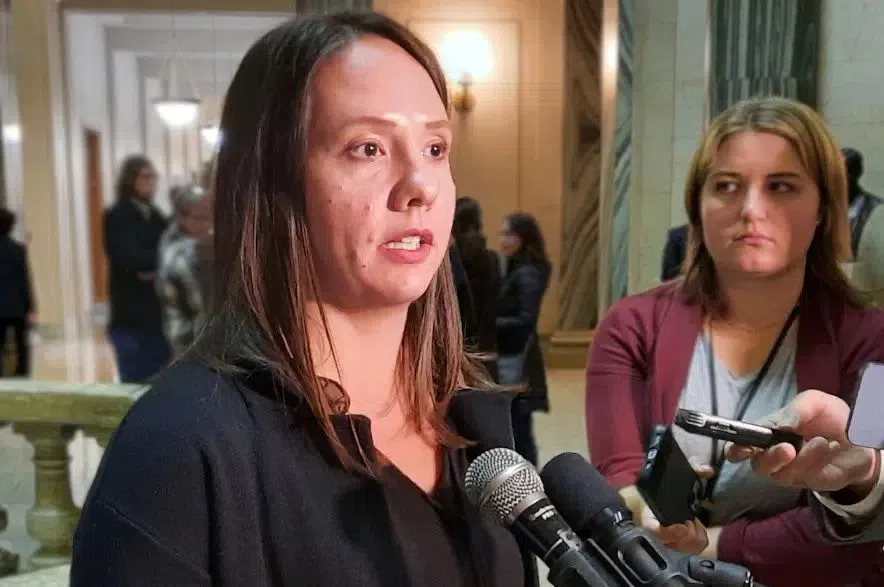The latest contract offer for Saskatchewan’s teachers includes an eight per cent raise over three years and millions of dollars to address classroom complexity.
The Saskatchewan Teachers’ Federation presented the tentative agreement to its 13,500 members during two virtual town hall meetings this week. According to federation president Samantha Becotte, the offer might not solve all the issues in classrooms, but it represents progress.
“Teachers are being critical of what it being put forward,” she said. “They are being critical of the context of the situation that we are in.”
According to the federation, the proposed agreement includes salary increases of three per cent in 2023-24 and 2024-25, and a two per cent increase in 2025-26.
It also adds an extra $18 million per year in provincial funding to address classroom complexity – the number of students in each class who require additional help – beyond the base amount of $356.6 million for classroom supports the province guaranteed in a four-year agreement with the Saskatchewan School Boards Association back in March.

Saskatchewan Teachers’ Federation president Samantha Becotte speaks to reporters in Regina. (Lisa Schick/980 CJME)
“This is a decade long problem that we have been trying to have addressed,” Becotte said. “It’s going to take a number of years to get to a solution. It’s going to have to continue to be a focus for everyone in Saskatchewan.”
In addition, the proposed agreement would include an “accountability framework” allowing teachers a voice on how school divisions allocate funding for in-class support. The offer would also create a “Minister’s Task Force on Classroom Complexity,” made up of students, teachers and parents.
Becotte said recommendations from the task force would be sent to the Education Minister for a response.
When asked if the task force would bring lasting change towards class complexities, Becotte responded with her own questions.
“Will the minister be responding to them?” Becotte said. “Will the Minister be enacting these recommendations? Will there be a timeline to see real tangible change acting on what comes forward?”
The tentative agreement also includes a new policy table on classroom violence, grievance procedures and more.
Teachers are expected to vote on the tentative agreement on Wednesday and Thursday next week, but it may be an uphill fight to get it ratified, as teachers overwhelmingly rejected a similar offer from the government earlier this month. That offer included identical salary increases, as well as the accountability framework.
But while that offer was not endorsed by the union, Becotte has been more positive about the latest proposal.
“We all worked very hard over the course of this week on both sides of the table to get to the point where we would be able to announce a tentative agreement,” Becotte said during a news conference last Friday.
At the start of bargaining, teachers asked for an annual raise of two per cent, plus the Consumer Price Index average annual rate for four years. Education Minister Jeremy Cockrill said that would have added up to a 23.5 per cent increase over those four years.
Cockrill said he hopes the deal will be ratified in order to provide some stability for those affected by the federation’s sanctions since the dispute began.
“I am hopeful that the tentative agreement will be finalized so that predictability is provided to families and teachers,” Cockrill said last week.
Sanctions so far have included strikes, work-to-rule measures and the withdrawal of lunch-hour supervision and support for extracurricular activities.
Cockrill has warned that the school year could be extended if more class time is lost due to sanctions. Meanwhile, the federation recently voted to give its executive a mandate to implement sanctions beyond the end of this school year if a new deal isn’t reached.











